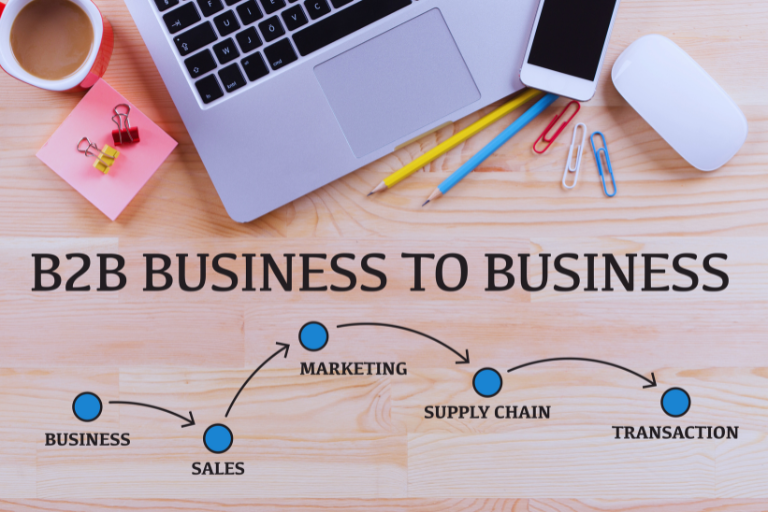The manufacturing industry has long relied on traditional marketing methods like trade shows, referrals, and outbound sales. While these tactics still play a role, today’s B2B buyers are turning to Google and other search engines to find manufacturing suppliers, compare options, and make purchasing decisions. If your business doesn’t appear in relevant searches, you’re missing out on potential leads and revenue.
SEO for manufacturing companies ensures that your business ranks higher on search engine results pages (SERPs), making it easier for corporate buyers to find and trust your brand. A well-executed SEO strategy helps manufacturers attract high-intent leads, improve brand visibility, and establish authority in their industry.
In this guide, we’ll find B2B SEO tactics that drive real results, from targeting the right keywords to optimizing technical SEO and content marketing.
1. Why SEO is Essential for Manufacturing Companies
B2B buyers research potential suppliers online before making purchasing decisions. According to recent studies, over 70% of B2B buyers start their purchasing journey with a Google search, and 76% of people visit a business within 24 hours of searching for a local provider. If your manufacturing company isn’t ranking in search results, your competitors are capturing those leads instead.
A well-structured SEO strategy helps manufacturers:
- Reduce dependency on trade shows and cold outreach by generating consistent inbound leads.
- Attract decision-makers who are actively searching for specific industrial products and services.
Investing in SEO ensures that your manufacturing business stays competitive, reaches new markets, and builds long-term visibility online.
2. Keyword Strategy: Ranking for High-Intent B2B Search Terms
Identifying B2B SEO Keywords
Unlike general consumer searches, B2B buyers use precise, industry-specific keywords when looking for manufacturing solutions. Instead of broad terms like “metal supplier,” they search for high-intent queries like:
- “Custom metal stamping for aerospace”
- “OEM CNC machining supplier”
- “Injection molding services for medical devices”
Targeting long-tail keywords ensures your business reaches buyers who are further along in the purchasing process and ready to engage.
Optimizing for Local & Global Search
Many manufacturers serve local and global markets, making it essential to:
- Use localized SEO tactics for regional clients, including Google Business Profile optimization and city-based landing pages.
- Optimize for international searches by creating country-specific content and using hreflang tags for multilingual SEO.
By refining your keyword strategy, you can connect with the right B2B audience and drive more qualified inquiries.

3. Technical SEO: Enhancing Website Performance for B2B Buyers
Why Technical SEO Matters
Corporate buyers expect fast-loading, mobile-friendly websites with clear product information. If your website is slow or difficult to navigate, potential customers will leave and choose a competitor instead.
Technical SEO Best Practices
- Improve site speed by compressing images, enabling browser caching, and using a reliable hosting provider.
- Ensure mobile responsiveness to provide a seamless experience for buyers researching on tablets or smartphones.
- Implement structured data markup so Google can better understand your product specifications and services.
A well-optimized technical foundation boosts search rankings, improves user experience, and increases conversion rates.
4. Content Marketing for Manufacturers: Educating & Engaging B2B Buyers
Creating Industry-Specific Blog Content
Educational content builds trust and positions your company as an authority in the manufacturing sector. Publishing valuable industry insights, technical guides, and case studies attracts buyers and keeps them engaged.
Effective content ideas for manufacturing companies include:
- “How to Choose the Right CNC Machining Partner for Your Industry”
- “Custom Metal Fabrication vs. Standard Parts: Which is Right for Your Business?”
- “The Future of Sustainable Manufacturing: Trends to Watch”
Leveraging Product & Service Pages
- Optimize product and service pages with detailed specifications, FAQs, and comparison charts.
- Create industry-focused landing pages to attract different segments, such as automotive, aerospace, or medical manufacturers.
Providing high-value content helps move buyers through the sales funnel, resulting in more inquiries and long-term business partnerships.
5. Link Building & Industry Authority: Strengthening SEO for Manufacturers
Acquiring High-Quality Backlinks
Backlinks from reputable industry websites signal trust and authority to search engines. Manufacturing companies can earn quality backlinks by:
- Getting featured in trade publications like Manufacturing Today and IndustryWeek.
- Listing their business in industrial directories such as ThomasNet, Kompass, and MFG.com.
Building Local & B2B Partnerships
- Partnering with OEM suppliers and distributors to exchange referral links.
- Publishing guest posts on industry blogs to expand brand exposure.
A strong backlink profile boosts SEO rankings, making it easier for B2B clients to find and trust your business.
6. SEO-Optimized Lead Conversion: Turning Website Visitors into B2B Clients
Improving Website UX for B2B Leads
Improving website UX for B2B leads is essential for converting visitors into potential clients. A well-designed website encourages action by incorporating strong calls to action like “Request a Quote” or “Download Our Product Catalog.” Adding live chat support and easy-to-fill contact forms ensures quick and seamless inquiries.
Leveraging Case Studies & Testimonials
Leveraging case studies and testimonials further enhances credibility by showcasing real-world success stories with data-driven results. Highlighting customer testimonials, certifications, and compliance standards reassures potential buyers that they are choosing a trusted and reliable manufacturing partner.
A conversion-optimized website ensures that your SEO efforts translate into actual business opportunities.
7. Measuring SEO Success: Key Metrics for B2B Manufacturing Companies
Tracking SEO Performance
- Monitor organic traffic, keyword rankings, and lead conversions with Google Analytics.
- Use Google Search Console to analyze search performance and fix technical errors.
Adjusting Strategies for Continuous Improvement
- Update underperforming pages based on analytics insights.
- Expand content and refine keywords to adapt to industry trends.
Regular performance tracking ensures ongoing SEO success and maximizes return on investment (ROI).
8. Why SEOArmy is the Best SEO Partner for Manufacturing Companies
At SEOArmy, we specialize in B2B SEO solutions for manufacturers, helping businesses rank higher and generate more inbound leads.
Our SEO Services Include:
- Targeted keyword research to attract corporate buyers.
- Technical SEO improvements for faster, optimized websites.
- Comprehensive content marketing to establish industry authority.
- Advanced link-building strategies to boost rankings and credibility.
Final Thoughts
Investing in SEO for manufacturing companies is a proven way to attract corporate buyers, generate high-quality leads, and increase revenue. By implementing targeted keyword strategies, optimizing technical SEO, and creating valuable content, manufacturers can position themselves as industry leaders and gain a competitive edge.
With the right SEO strategy, your business will not only increase its online visibility but also build trust with decision-makers looking for reliable manufacturing solutions. Start optimizing today and unlock new opportunities for long-term business growth.





